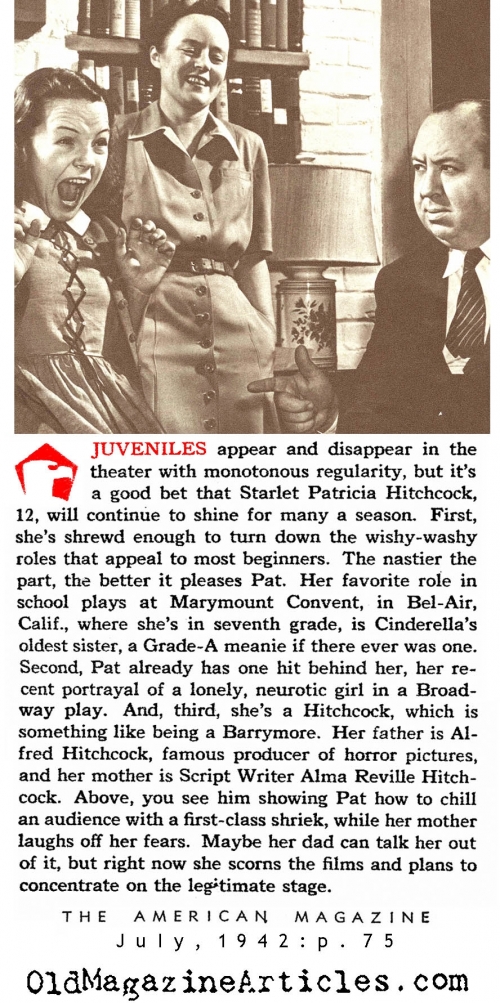"Now at work on his first American motion picture [since arriving in the U.S.], the glossily rotund Hitchcock, whose gelatinous appearance and jocose manner belie his sinister intent, and who brightly eyes all comers with a sort of controlled effervescence, happily declares that his first Hollywood opus will surpass anything he has yet done to keep an audience poised on the edges of its chairs."
"Early experiences in pictures taught Hitchcock "the hard way" many phases of the industry, but there is plenty more to learn, he declares. He seldom attends picture shows, and avoids reading novels in which he is not professionally interested. This, he says, is to keep his sources of plot ideas uninfluenced by outsiders. For the same reason, he seldom appears on sound stages where other pictures are being made, although he visited sets of "Gone with the Wind," and doesn't mind visitors on stages where he is working. When Hitchcock came to California under exclusive long-term contract to Selznick, he brought not only his wife, but his daughter, Patricia, aged 10, and her two dogs, Edward IX, a Cocker, and Mr. Jenkins, a Sealyham. The Hitchcocks, with traditional British caution, said they would need more time to get acclimated. 'You may say,' the director joyously commented, "that California looks to good to be true.'"
